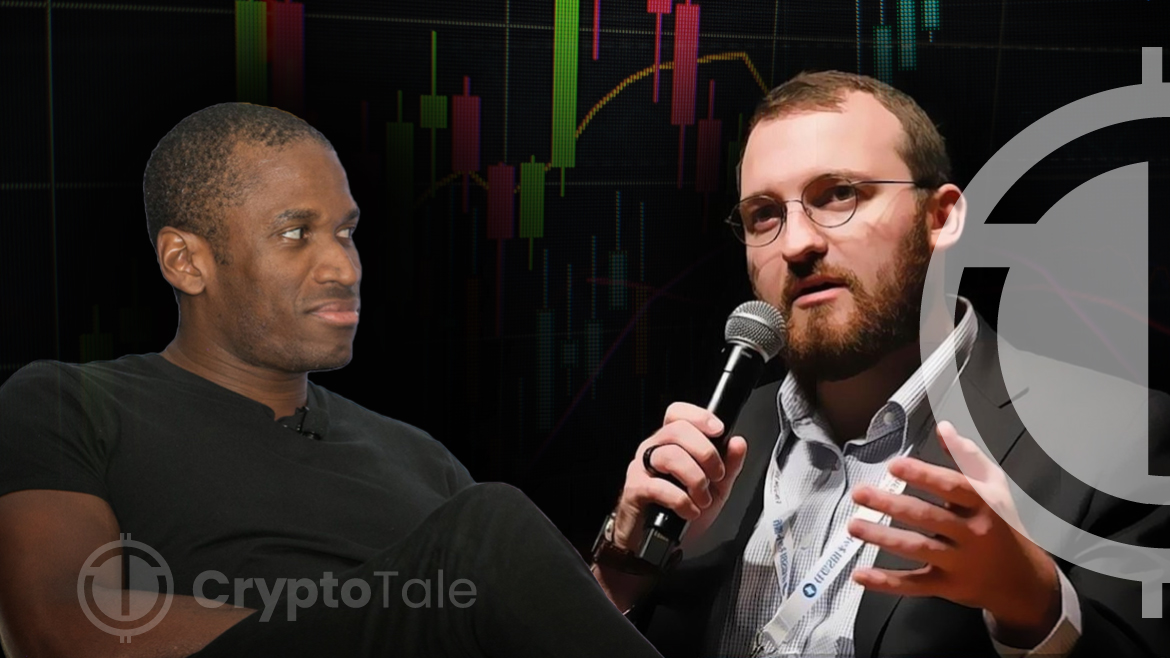- Criticism from figures like Arthur Hayes underscores the scrutiny Cardano faces in proving its utility and relevance in the competitive crypto space.
- Cardano’s innovative features, such as liquid staking and burgeoning DeFi projects, challenge critiques.
- The ongoing debate between Hayes and Cardano’s founder highlights the need for transparent discourse in the cryptocurrency community.
Arthur Hayes, the co-founder of BitMEX, recently ignited a heated debate within the cryptocurrency community by launching scathing criticism against Cardano (ADA), referring to it as a dog shit memecoin. This harsh assessment drew a swift response from Cardano founder Charles Hoskinson, sparking a back-and-forth exchange that has captured the attention of many within the crypto sphere.
Hayes’s critique centered around his perception of Cardano’s lacking utility, particularly in comparison to other cryptocurrencies with more robust decentralized applications (dApps). He challenged ADA enthusiasts to identify any significant dApps launched on the Cardano network, suggesting an absence of such applications. However, his remarks were swiftly countered by members of the Cardano community, who highlighted several notable projects within the ecosystem.
Dan Gambardello, Founder of CryptoCapitalVenture, argues that its value lies not solely in the number of dApps but in the quality and innovation of its underlying technology. They highlight Cardano’s native liquid staking system, integrated into its Ouroboros protocol, which allows ADA holders to stake their tokens without locking them up for a specific period. This innovative approach to staking provides security and efficiency without the need for additional dApps like those found on other platforms.
Liqwid Labs emphasized its role as the first non-custodial pooled lending protocol with liquid staking on Cardano. They highlighted their contributions to developing Aave v3 liquidity pools and Lido liquid staking, offering ADA lenders opportunities to earn yields from staking and borrowing interest. Other Cardano-based teams, such as Minswap Labs, Optim, and Indigo, were cited for their innovative DeFi products, further challenging Hayes’s assertion.
Minswap Labs, a Cardano-based decentralized exchange, countered Hayes’s claims by revealing impressive figures of over 2.1 million trades facilitated in 2023 alone, with a trading volume exceeding 4 billion ADA and attracting more than 401,000 users. These statistics underscore the burgeoning growth and activity within the Cardano ecosystem, contradicting Hayes’s dismissal of the network.
In response to the criticism, Charles Hoskinson directly addressed Hayes, seeking clarification on his motivations for disparaging Cardano. Despite expressing admiration for Hayes, Hoskinson voiced disappointment at the unfair characterization of ADA. However, Hayes remained resolute, reiterating his negative perception of Cardano without providing specific reasons for his critique.
As the debate continues to unfold, with Hayes yet to offer a detailed explanation for his criticism, the Cardano community remains steadfast in highlighting the network’s advancements and contributions to the broader cryptocurrency landscape. The exchange serves as a reminder of the ongoing discourse and scrutiny within the crypto community as different projects vie for prominence and recognition.






